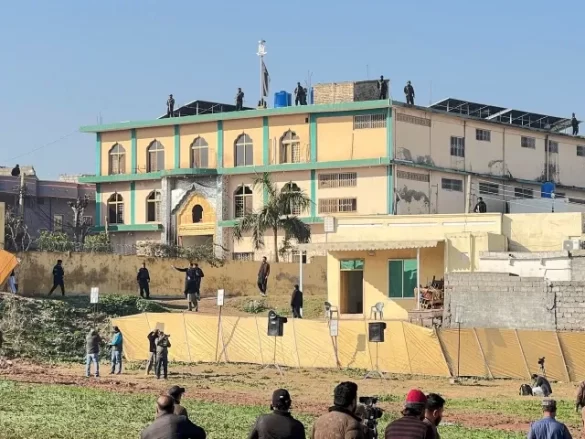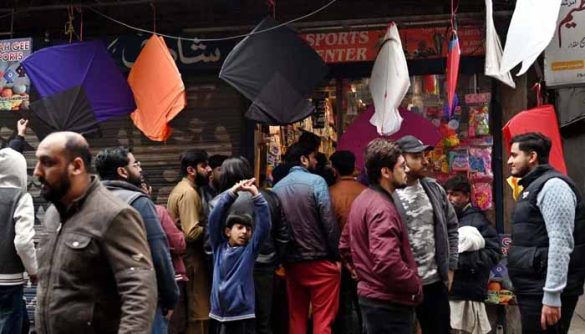Appeal Against Anti-Terrorism Court Rulings
Lahore — Dr. Yasmin Rashid, a senior leader of Pakistan Tehreek-e-Insaf (PTI) and former Punjab health minister, has filed three separate appeals in the Lahore High Court against convictions handed down by an anti-terrorism court (ATC) in connection with the violent protests of May 9, 2023.
The court had sentenced her to 10 years in prison in each of three different cases, all related to attacks on public property and state institutions during the unrest that followed the arrest of PTI chairman Imran Khan. Rashid, who remains a prominent figure within the embattled party, has asked the high court to annul the sentences and order her release.
Claims of Weak Evidence and Procedural Flaws
In her petitions, Dr. Rashid argues that the trial court convicted her without properly evaluating the evidence. She maintains that the ATC relied on what she described as “weak, unreliable and insufficient” evidence. According to the appeals, the testimonies and documents presented by the prosecution did not meet the legal standards required for conviction, yet were accepted without due scrutiny.
Rashid further contends that the judgments ignored basic principles of justice. She insists the sentences are “unlawful, politically motivated, and contrary to the requirements of fairness.” Her legal team has urged the Lahore High Court to suspend the punishment while the appeals are under consideration, allowing her to be released on bail in the meantime.
The Cases in Question
The three convictions stem from separate incidents during the May 9 unrest:
-
Shadman Police Station Attack Case – where protesters allegedly targeted the station.
-
Sherpao Bridge Arson Case – where public property was set ablaze.
-
Vehicles Torched Near Jinnah House Case – where cars were burned in the vicinity of a key military residence.
In each case, Rashid received a 10-year prison term, similar to other senior PTI leaders sentenced over the May 9 violence. Collectively, the sentences add up to 30 years. However, the exact manner in which the terms are to be served — whether concurrently or consecutively — remains subject to judicial clarification.
Background: May 9 Unrest
The violence of May 9, 2023, broke out after the dramatic arrest of former prime minister Imran Khan by paramilitary forces at the Islamabad High Court. The detention sparked widespread demonstrations across Pakistan, many of which turned violent.
Government buildings, police installations, and military properties were attacked in several cities, including Lahore, Rawalpindi, and Peshawar. According to official estimates, dozens of public and private properties were damaged, causing losses worth billions of rupees. At least 10 people were reported killed in clashes, while thousands of PTI supporters were arrested.
The Pakistani government and military described the protests as an “attempted insurrection” against the state. PTI leaders, however, have argued that the reaction of the authorities has been politically motivated, aimed at dismantling the party and silencing dissent.
Political and Legal Significance
Dr. Yasmin Rashid’s case is being closely followed by both legal experts and political observers. A seasoned politician and long-time PTI loyalist, Rashid is considered one of the party’s key female leaders. She previously contested multiple elections against Pakistan Muslim League-Nawaz (PML-N) leaders in Lahore and served as Punjab’s health minister from 2018 to 2022.
Her imprisonment has been a major blow to PTI’s organizational strength in Punjab, Pakistan’s most populous province. The appeals now before the Lahore High Court are seen as a test of the judiciary’s approach toward high-profile May 9 cases, many of which involve PTI’s top leadership.
Wider Crackdown on PTI
Since the May 9 protests, Pakistani authorities have intensified their crackdown on PTI. Hundreds of workers and mid-level leaders remain in custody, while many prominent figures have either defected under pressure or gone into hiding. The party has struggled to organize rallies and maintain political momentum, particularly ahead of the February 2024 general elections, which it contested under severe restrictions.
Human rights groups, including Amnesty International and Human Rights Watch, have criticized the mass arrests and trials in military and anti-terrorism courts. They argue that such measures undermine democratic freedoms and the right to fair trial.
What Lies Ahead
The Lahore High Court’s decision on Yasmin Rashid’s appeals could set an important precedent for other PTI leaders facing similar convictions. If the court finds the evidence against her lacking, it may influence how future May 9 cases are handled. Conversely, if the convictions are upheld, it will further strengthen the government’s narrative that PTI leaders were directly involved in orchestrating violence.
For now, Rashid’s legal battle adds another layer of uncertainty to Pakistan’s already volatile political landscape. As one of PTI’s most resilient figures, her fate will carry weight not just for her party, but also for broader debates about justice, accountability, and the balance between security and political freedoms in Pakistan.















